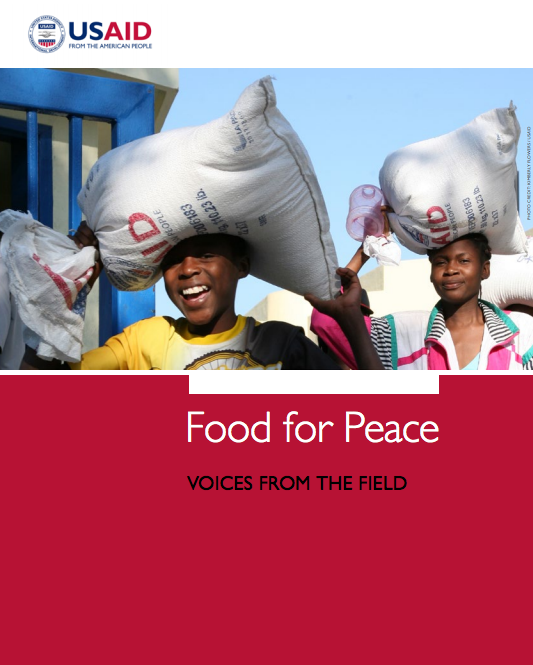- Who We Are
- Mission, Vision and Values
- Organization
- Leadership
- Office of the Administrator
- Bureaus
- Africa
- Asia
- Europe and Eurasia
- Latin America and the Caribbean
- Middle East
- Democracy, Conflict and Humanitarian Assistance
- Center of Excellence on Democracy, Human Rights and Governance
- Office of American Schools and Hospitals Abroad
- Office of Civilian-Military Cooperation
- Office of Conflict Management and Mitigation
- Office of Crisis Surge Support Staff
- Office of Food for Peace
- Office of Program, Policy, and Management
- Office of Transition Initiatives
- Office of U.S. Foreign Disaster Assistance
- Economic Growth, Education and Environment
- Food Security
- Global Health
- Legislative and Public Affairs
- Management
- Policy, Planning and Learning
- Foreign Assistance
- U.S. Global Development Lab
- Independent Offices
- Mission Directory
- Staff Directory
- Advisory Committee
- Board for International Food and Agricultural Development
- Mission Directors
- Coordinators
- Global Development Council
- USAID History
- Operational Policy (ADS)
- Transparency
- Resource Portal
On July 10, 1954, President Eisenhower signed into law the legislation that would eventually become known as the Food for Peace Act. As a result, the Food for Peace program has been bringing help and hope to the far reaches of the world for 60 years - reaching more than 3 billion hungry people since its inception. This video celebrates the 60 years of Food for Peace's work, and looks to the future of food assistance.
For more than 60 years, the Office of Food for Peace (FFP) provides life-saving food assistance to vulnerable populations and reduces hunger and malnutrition so that all people at all times have access to sufficient food for healthy and productive lives.
Our Work
FFP predicts, prevents, and responds to hunger overseas. Through its emergency programs, FFP saves lives, reduces suffering, and supports the early recovery of people affected by conflict and natural disaster emergencies through food assistance. FFP’s development programs equip people with the knowledge and tools to feed themselves, address the underlying causes of hunger, and reduces the need for future food assistance. Alleviating global hunger is critical to national security: where hunger persists, instability grows. By supporting the world's most vulnerable, FFP is building a more stable world and ensuring that people have the opportunity to lead healthy, productive lives.
Food for Peace: Voices from the Field ![]() (pdf - 4 MB)
(pdf - 4 MB)
Emergency Programs
FFP assists tens of millions of people in dozens of countries each year experiencing crises. FFP saves lives by meeting immediate food needs and sows the seeds for community recovery through interventions that help communities rebuild livelihoods and better prepare for future shocks.
FFP responds to emergencies when there is an identified need for food assistance and local authorities do not have the capacity to respond. There needs to be verification that a humanitarian need exists for external food assistance, a U.N. Emergency appeal, or a U.S. Embassy/State Department disaster declaration. Food for Peace provides resources to the U.N. World Food Program and to non-governmental organizations (NGOs).
Development Programs
Food for Peace multi-year development activities reduce food insecurity among vulnerable populations and help build resilience in communities facing chronic poverty and recurrent crises such as drought. They do so by tackling food insecurity through a multi-sectoral approach that looks beyond food - supporting agriculture interventions, income diversification, preventive approaches to malnutrition and disaster risk reduction, among other activities.
Nutritional Support Programs
The International Food Relief Partnership (IFRP) provides small grants to predominately faith-based groups to distribute ready-to-use supplementary food and dried soup mix in primarily institutional settings such as health clinics, schools and community centers. Through these programs, more than 300,000 individuals – including orphans, people living with HIV/AIDS, the elderly, and others – have received supplementary food designed to address food insecurity.
Career Opportunities
The Office of Food for Peace is always looking for highly motivated, creative and experienced individuals to work for our office. Please visit www.ffpjobs.com to learn about current opportunities.
Contact
For more information on the Office of Food for Peace, contact AskFFP@usaid.gov.








Comment
Make a general inquiry or suggest an improvement.